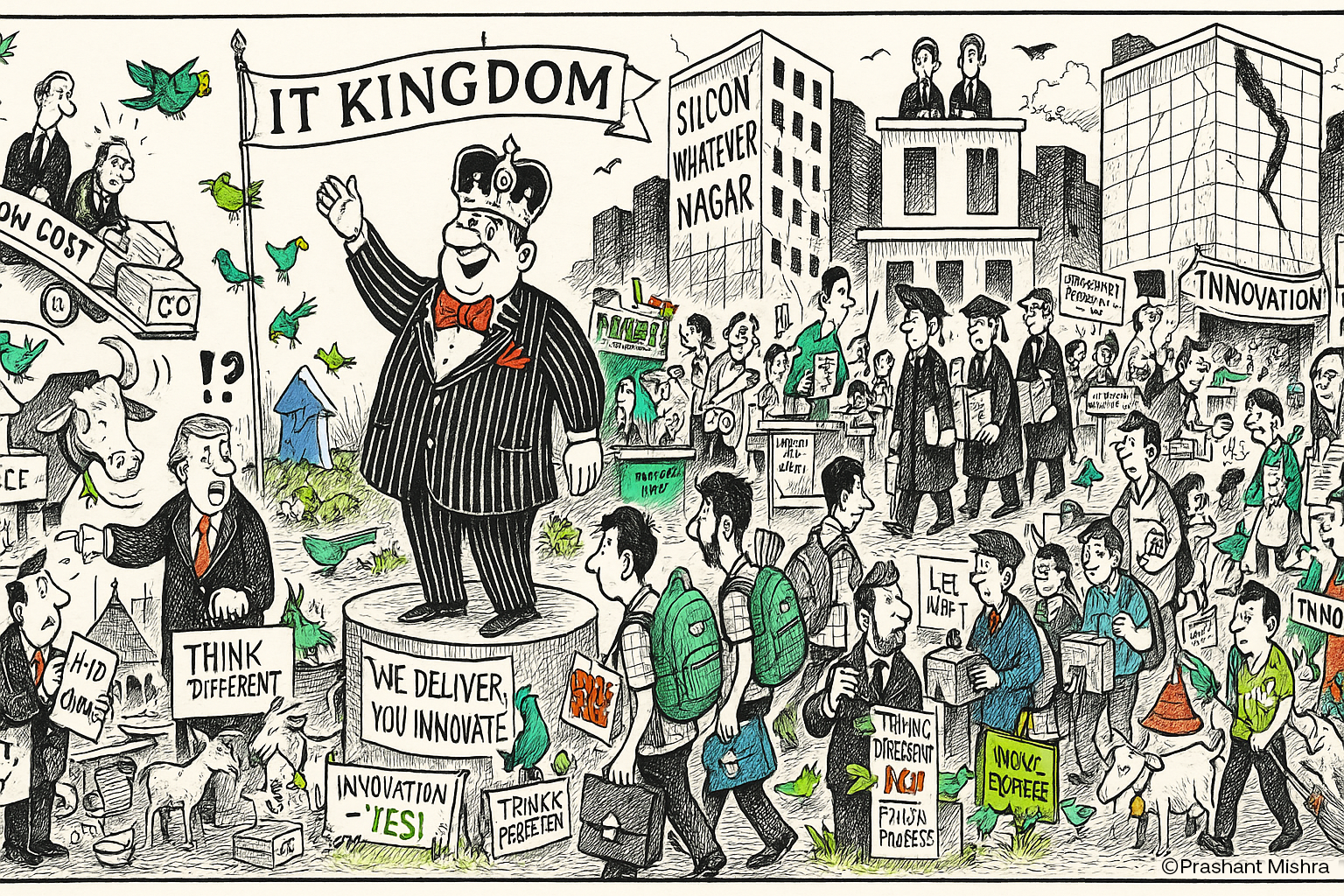
Building Accountability in Organizations
Building Accountability in Organizations: The Key to High-Performance
Accountability is a word we often hear, yet many organizations struggle to implement it effectively. So, let us just start with the textbook definition of the term accountability and break-down its nuance. Webster's Dictionary defines accountability as "an obligation or willingness to accept responsibility for one's actions." Accountability is a concept deeply rooted in many cultures, including the rich traditions of the Indian subcontinent. Anyone from the Indian subcontinent or those that have been exposed to the myths and traditions of India will probably immediately identify with the statement “an obligation or willingness to accept responsibility for one's actions.” It is one of the principal philosophical foundations of Indian epics, history (or what we call Itihasa in Sanskrit), and stories. In the epic Mahabharata, for example, accountability is a central theme, illustrating the importance of owning one’s actions.
However, even when the term is so ubiquitous and readily acceptable to our analytical mind, in the working world (and I use that term loosely to define any place which is based on principles of economic profit and loss), the word accountability is often charged with negative connotations, stress, and even fear?
This is because many see it as assigning blame rather than a way to foster ownership. This misunderstanding is why accountability often feels like a burden in workplaces.
The Importance of Accountability in Today’s Workplace
Studies show how crucial accountability is for organizational success:
- 25% of remote managers say that lack of accountability is their biggest hurdle.
- 93% of employees don’t know their team’s goals, while 85% of leaders fail to set clear expectations.
- On the flip side, much research suggests that engaged employees, who often work in accountable environments, lead to higher profitability for companies.
So, while we see the need for accountability and understand the consequences of its absence, many organizations still struggle to build a culture around it.
The Critical Distinction between Responsibility and Accountability: Many people use "responsibility" and "accountability" interchangeably, but they are different. Responsibility is about action—doing the work. Accountability is about ownership—ensuring the outcome is achieved. Henry Evans, in Winning with Accountability, puts it simply: “Clear commitments that — in the eyes of others — have been kept.” The key phrase here is "in the eyes of others." True accountability means being answerable not just for your actions, but for the results, as perceived by your team and stakeholders. The key here is the perception of others.
Then why does accountability break down? There can be several reasons why accountability falters in many organizations but the principle ones are:
- Misalignment in expectations across teams
- Poor communication, especially in remote settings
- Lack of clarity on progress or how individual efforts contribute to larger goals
This breakdown often happens because people view accountability as a means of assigning blame when things go wrong rather than as a positive force for ownership and achievement.
It is the managers who must play a critical role in creating a culture of accountability, and that happens by clarity and regular communication. Here are four ways to promote accountability:
- Set Clear Expectations: Define roles, projects, and workflows with details, so everyone knows what’s expected of them.
- Establish Planning Habits: Encourage both daily planning and long-term goal setting to keep teams focused and aligned.
- Monitor Progress: Regularly check in on progress and commitments to ensure everyone is on track.
- Apply Equal Standards: Ensure fairness by holding all team members, regardless of their rank, to the same standards of accountability.
Accountability is more than just making and keeping commitments—it's about creating transparency. When teams operate in an environment of shared accountability, they focus on results, solve problems collectively, and take responsibility for their actions. This culture of accountability leads to better collaboration, fewer surprises, and greater job satisfaction.
High-performing teams don’t just execute tasks—they hold each other accountable, share progress, and work towards common goals. By fostering a culture where accountability is embraced rather than feared, organizations can create an environment of trust, transparency, and high performance.


